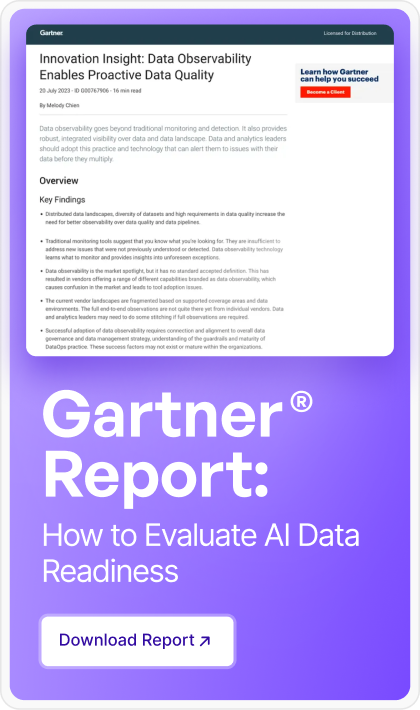Imagine a global retail chain that processes terabytes of customer transaction data daily. The company wants to analyze purchasing trends, predict future demands, and offer personalized discounts in real time. However, the sheer volume, variety, and velocity of the data make it nearly impossible to manage using traditional tools. This is where Apache Hadoop steps in as a game-changer.
As an open-source framework for big data management and analysis, Hadoop enables businesses to harness the power of distributed storage and batch processing. Its ability to efficiently process massive datasets across clusters of computers has made it a cornerstone technology for industries like retail, healthcare, and finance. With Hadoop, organizations can unlock actionable insights, streamline operations, and stay ahead in today’s data-driven world.
This blog post explores Apache Hadoop’s core concepts, architecture, benefits, and real-world applications, offering a comprehensive guide for modern enterprises.
What Is Apache Hadoop?
Apache Hadoop is a transformative tool designed to tackle the challenges of managing and processing massive datasets. At its core, it is an open-source framework that allows businesses to efficiently store and analyze large-scale data across a network of computers.
What sets Hadoop apart is its ability to process diverse data formats, structured, unstructured, and semi-structured, using a distributed approach. Instead of relying on a single high-powered system, Hadoop breaks the data into smaller, manageable pieces and distributes them across multiple nodes. This architecture ensures high availability, fault tolerance, and scalability, making Hadoop an essential choice for businesses aiming to derive value from their data techniques.
Key Features of Apache Hadoop
Apache Hadoop’s robust architecture and versatility make it a go-to solution for handling big data. Below are the core features that define its success:
1. Distributed storage
Hadoop’s HDFS (Hadoop Distributed File System) splits data into blocks and distributes them across multiple nodes in a cluster. This ensures that even massive datasets can be stored efficiently without expensive hardware.
2. Fault tolerance
Hadoop is built with redundancy, ensuring that data is replicated across nodes. If a node fails, the system functions seamlessly without data loss.
3. Scalability
Hadoop clusters can scale horizontally by simply adding more nodes. This flexibility makes it future-proof as data volumes grow.
4. Batch processing with MapReduce
Hadoop’s MapReduce model allows it to process large datasets by dividing tasks into smaller subtasks executed across nodes. This parallel processing reduces time and computational overhead.
5. Flexibility in data types
Unlike traditional databases, Hadoop supports structured, unstructured, and semi-structured data, including text, images, videos, and logs.
6. Cost-effectiveness
As an open-source framework, Hadoop eliminates licensing costs and runs on commodity hardware, making it an affordable option for businesses of all sizes.
The Architecture of Apache Hadoop
Apache Hadoop’s architecture is designed to handle and process large-scale datasets efficiently, offering a modular framework with distinct components that work seamlessly together.
1. HDFS (Hadoop Distributed File System)
HDFS is the backbone of Hadoop’s architecture and is responsible for storing vast amounts of data across multiple nodes in a cluster. Its design ensures high availability through data replication, providing fault tolerance and resilience.
Use case: A streaming service like Netflix stores user activity logs and streaming data in HDFS, enabling efficient storage and retrieval for analytics.
2. YARN (Yet Another Resource Negotiator)
YARN acts as the resource manager within Hadoop, allocating system resources and scheduling tasks across the cluster. This component enhances scalability and ensures optimal utilization of computing power.
Use case: A logistics company uses YARN to manage and prioritize resource allocation for route optimization algorithms during peak delivery hours.
3. MapReduce
MapReduce is the processing engine of Hadoop that divides large data tasks into smaller, manageable subtasks. The Map phase distributes tasks across nodes, while the Reduce phase aggregates the results to produce the final output.
Use case: Retailers use MapReduce to analyze sales data for trends and patterns, such as identifying the most popular products during seasonal promotions.
4. Hadoop Common
This is a collection of utilities and libraries essential for operating other Hadoop components. It ensures seamless integration and communication within the framework.
Use case: Organizations rely on Hadoop Common to standardize configurations and maintain interoperability between custom applications and Hadoop.
Benefits of Apache Hadoop
Apache Hadoop has become a cornerstone technology for managing and analyzing large-scale data due to its unparalleled benefits. Here are the key advantages it offers:
- Cost-effective data management: As an open-source framework, Hadoop eliminates licensing costs and can run on commodity hardware, reducing data infrastructure expenses.
- Scalability for growing data needs: Hadoop can seamlessly scale horizontally by adding more nodes to the cluster, accommodating increasing data volumes.
- High fault tolerance: Data replication across multiple nodes ensures no information is lost, even during hardware failures.
- Flexibility with diverse data formats: Hadoop supports structured, semi-structured, and unstructured data, making it versatile for handling diverse datasets such as text, images, videos, and logs.
- Accelerated processing of big data: Hadoop’s batch processing capabilities, powered by MapReduce, enable the rapid analysis of massive datasets by processing tasks in parallel across nodes.
Use Cases of Apache Hadoop
Apache Hadoop’s versatility and scalability make it indispensable for managing and analyzing big data. Here are some of its most impactful applications:
1. Retail and e-commerce
Hadoop enables retailers to analyze customer behavior, purchasing patterns, and website traffic to improve decision-making and enhance customer experiences.
Use case: E-commerce platforms like Amazon use Hadoop to power recommendation engines, offering personalized product suggestions based on shopping histories.
2. Healthcare
In healthcare, Hadoop processes large-scale patient data, such as medical records and genomic information, to improve research and treatment.
Use Case: Hospitals rely on Hadoop to identify disease trends and personalize treatment plans by analyzing wearable device data and patient histories.
3. Financial services
Financial institutions use Hadoop to detect fraud, analyze risk, and ensure regulatory compliance by processing massive datasets in real time.
Use case: Banks leverage Hadoop to monitor transactions for irregularities, enabling proactive fraud detection.
4. Media and entertainment
Hadoop supports the media industry by analyzing viewer preferences and delivering personalized content recommendations.
Use case: Streaming platforms like Netflix use Hadoop to understand user behavior, optimizing their recommendation systems for better engagement.
Challenges of Apache Hadoop with Solutions
While Apache Hadoop is a powerful framework for managing big data, it comes with certain challenges. Here’s a look at these limitations and potential solutions:
1. Complexity in implementation: Deploying and maintaining Hadoop requires expertise in distributed systems, making it daunting for organizations without skilled resources.
Solution: Organizations can leverage managed Hadoop services, simplifying setup and maintenance by handling the infrastructure and configurations.
2. Resource-intensive: Hadoop clusters demand significant computational and storage resources, which can be costly for smaller organizations.
Solution: Opting for cloud-based Hadoop solutions allows organizations to scale resources on-demand, reducing upfront infrastructure costs while maintaining flexibility.
3. Security concerns: Hadoop’s default security features are minimal, potentially exposing sensitive data to risks. Advanced configurations like Kerberos require additional effort and expertise.
Solution: Organizations can enhance Hadoop security by integrating third-party solutions for encryption, role-based access control, and secure authentication.
4. Lack of real-time processing: Hadoop’s batch processing model isn’t suitable for applications needing real-time analytics, such as stock market predictions or live monitoring.
Solution: Integrating Hadoop with real-time processing tools like Apache Spark or Apache Kafka can bridge the gap, enabling faster data processing and real-time insights.
Alternatives to Apache Hadoop
While Apache Hadoop remains a leading framework for big data management, several alternatives have emerged that address some of its limitations. These tools offer unique capabilities suited for specific use cases:
1. Apache Spark
Why choose it: Spark is known for its in-memory processing, which dramatically increases the speed of data analytics compared to Hadoop’s batch processing model. It also supports a broader range of workloads, including real-time analytics and machine learning.
Use case: Financial institutions often prefer Spark for real-time fraud detection because it can quickly process live transaction data.
2. Databricks
Why choose it: Built on Apache Spark, Databricks provides a unified platform for data engineering, machine learning, and analytics. Its user-friendly interface and cloud-native architecture make it an attractive option for enterprises.
Use case: E-commerce companies use Databricks to streamline customer segmentation and personalize marketing campaigns by analyzing massive datasets in real time.
3. Snowflake
Why choose it: Snowflake is a cloud-based data warehouse that offers elasticity, scalability, and near-zero maintenance. Unlike Hadoop, it handles structured and semi-structured data with high efficiency.
Use case: Retail businesses leverage Snowflake for scalable inventory management and demand forecasting without the need for heavy infrastructure.
4. Amazon EMR (Elastic MapReduce)
Why choose it: Amazon EMR provides a managed Hadoop and Spark service on AWS. It simplifies deployment, scaling, and management while integrating seamlessly with other AWS services.
Use case: Media companies use Amazon EMR to process large-scale video, log data, and enhance user experiences.
5. Google BigQuery
Why choose it: BigQuery is a fully managed serverless data warehouse allowing fast SQL-based querying over large datasets. Its ease of use and real-time analytics capabilities set it apart.
Use case: Marketing agencies rely on BigQuery to track and analyze campaign performance across multiple platforms in real time.
Best Practices for Implementing Apache Hadoop
To fully leverage Apache Hadoop’s capabilities and ensure efficient big data processing, organizations should adhere to the following best practices:
- Plan for scalability: Design your Hadoop infrastructure to accommodate growing data volumes and seamlessly integrate additional nodes as needed.
- Optimize data placement and replication: Implement efficient data placement strategies and balance replication factors to enhance fault tolerance and system performance.
- Prioritize security and compliance: Strengthen security configurations and ensure compliance with industry standards to protect sensitive data and maintain trust.
- Leverage ecosystem tools: Utilize complementary tools within the Hadoop ecosystem to simplify data processing and enhance functionality.
- Monitor and fine-tune performance: Monitor cluster performance and optimize configurations to maximize resource utilization and processing speed.
How Acceldata’s Agentic Data Management Enhances Apache Hadoop for Scalable Growth
Apache Hadoop empowers organizations to manage and analyze vast amounts of data—but its full potential is often limited by inconsistent data quality, siloed systems, and the complexity of maintaining performance at scale.
That’s where Acceldata’s Agentic Data Management (ADM) platform makes a meaningful difference.
ADM brings intelligent, autonomous data management to the forefront—ensuring that the data feeding into your Hadoop environment is clean, connected, and governed in real time. With AI agents that continuously monitor, learn, and take action, ADM helps enterprises avoid common pitfalls like fragmented insights, delayed decision-making, and missed growth opportunities.
By aligning data pipelines with business context, ADM enables organizations to:
- Maximize customer insights
- Improve operational efficiency
- Drive smarter, faster decisions across the enterprise
Whether you're using Hadoop for customer analytics, risk modeling, or operational intelligence, Acceldata helps you scale your data strategy with confidence—without the complexity of patchwork fixes.
Summary
Apache Hadoop is a transformative framework that has redefined the way organizations handle big data. This blog explores Hadoop's core concepts, architecture, and benefits, highlighting its distributed storage, batch processing capabilities, and flexibility for diverse data formats. It delves into real-world applications across industries like retail, healthcare, and finance while addressing challenges such as complexity and security concerns. It introduces Acceldata as a complementary platform that enhances Hadoop’s capabilities, ensuring seamless operations and optimized big data management.














.webp)
.webp)


